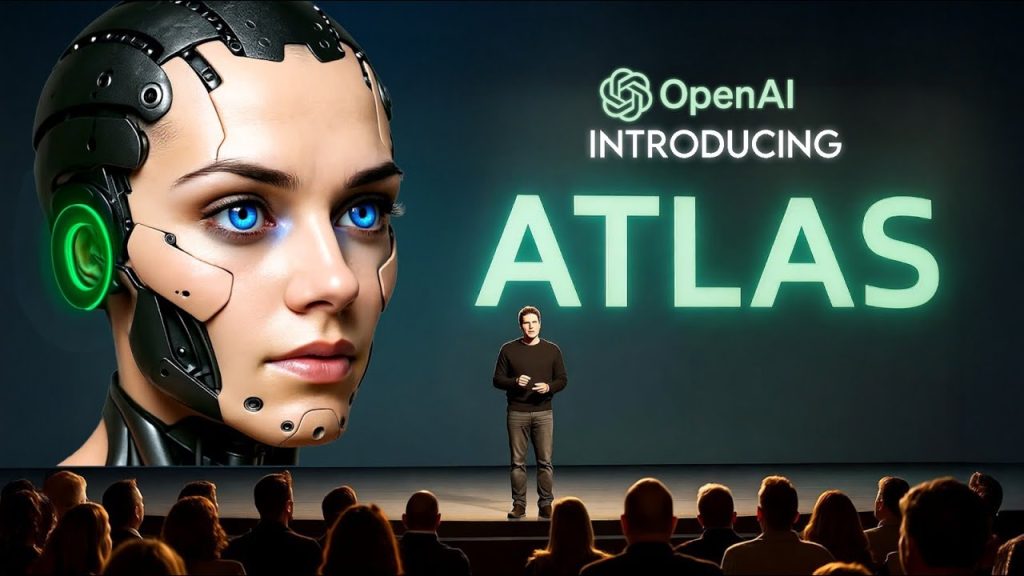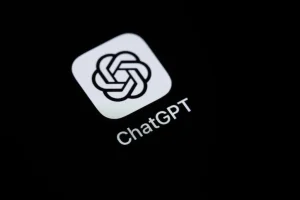OpenAI Launches Revolutionary AI Browser That Outshines Google.

OpenAI Launches ChatGPT Atlas: A Revolutionary AI-Powered Browser
OpenAI has made headlines once again by launching ChatGPT Atlas, an AI-powered browser that redefines our internet experience. Officially unveiled on October 21st, this innovative tool turns web browsing into an engaging conversation with ChatGPT acting as your co-pilot. This ambitious move aims to not just compete with existing browsers but to revolutionize how we use the web.
A New Era in Browsing
Sam Altman, OpenAI’s CEO, set the stage during the live stream event, stating, “This isn’t just another app bolted onto ChatGPT. It’s a complete rethink of how people use the web.” His words underscore the intent behind Atlas: to replace the conventional URL bar and search results with an AI-driven interface that intuitively understands and acts upon user requests.
Features of ChatGPT Atlas
ChatGPT Atlas is currently available for Mac OS, with versions for Windows, iOS, and Android expected soon. However, the full agent mode is limited to ChatGPT Plus and Pro users.
One standout feature is Atlas’s capability to perform tasks on your behalf. You can ask it to book a flight, find a recipe, or edit a document, and it will manage these tasks seamlessly. During the demo, developers showcased Atlas’s ability to navigate Instacart, discover meal ingredients, and complete the checkout autonomously.
A Team of Industry Veterans
The team behind Atlas includes experienced engineers like Ben Goodger, a key figure behind both Chrome and Firefox, along with designers and product leads from tech giants like Apple and Mozilla. Altman refers to Atlas as the “beating heart” of ChatGPT, reflecting OpenAI’s vision of integrating a chat interface directly with the open web.
User Interface and Navigation
At first glance, Atlas appears familiar. It retains the traditional search bar and tab functionality. However, the user experience becomes unique when engaging with the browser. Clicking a link results in a split screen, displaying a live chat with ChatGPT alongside the webpage. This chat can summarize, analyze data, compare products, or rewrite sections of highlighted text—a feature aptly named “Cursor Chat.”
Memory also plays a crucial role in enhancing user experience. Atlas can remember your search history, read pages, and track ongoing projects, allowing it to provide personalized recommendations over time. If you’ve compared laptops before, it can serve updated options, ensuring that your browsing experience continually evolves.
Enhancing Convenience and Control
User control is a priority for Atlas. You can manage which websites ChatGPT can access, delete memories, or opt for an incognito mode for privacy. Unlike extensions, Atlas cannot run scripts, download files, or intrude on sensitive data, pausing automatically when navigating financial sites.
To accommodate families, Atlas includes parental controls that let parents manage memory settings and agent mode access for kids’ accounts. This not only provides security but also addresses early concerns regarding personal data privacy in AI tools.
AI Browsing: The Competitive Landscape
OpenAI’s venture into browser technology is timely, as AI-driven browsing has gained traction. Other players like Perplexity’s Comet, Opera’s Neon, and Brave’s AI integration are emerging. Google has also begun incorporating its AI, Gemini, into Chrome. In this growing ecosystem, Atlas aims to distinguish itself by facilitating real-time navigation rather than merely summarizing information.
The launch comes at a time when AI browsers are seen as the next frontier. Investors reacted significantly to the announcement, leading to a 1.8% dip in Alphabet’s stock, illustrating the seriousness of this market shift.
The Future of Browsing
OpenAI’s objective with Atlas is to redefine browser functionality entirely. Instead of navigating from page to page, Atlas keeps ChatGPT as your steadfast companion, enabling users to have a more personalized and efficient browsing experience. For instance, while researching flights, you can ask the AI to filter search results according to price or layover options—all without leaving the airline’s website.
Privacy and Ethical Concerns
However, the rise of AI-based browsers brings forth privacy and user agency questions. Some analysts express concern that if AI learns too much about personal preferences, it could inadvertently shape user experiences instead of just assisting them. Additionally, discussions around potential behavioral data usage for advertising purposes have emerged, raising questions about how this may impact established businesses like Google.
Regulatory bodies are also monitoring the development of AI tools. A study from the European Broadcasting Union found that up to 45% of AI responses contained significant factual inaccuracies, which complicates the trust users place in these systems. OpenAI insists that users remain in control and can choose how much data the AI can access.
A Bright Horizon
Despite potential pitfalls, user enthusiasm remains high. ChatGPT has surged to over 800 million users, reflecting the public’s growing acceptance of AI technologies for information retrieval. A recent survey revealed that 60% of Americans—and nearly 75% of those under 30—frequently use AI to gather information. This bodes well for ChatGPT Atlas as users are prepared to adopt a browser that integrates AI capabilities into their daily lives.
Conclusion
ChatGPT Atlas represents a daring shift in internet browsing—transforming passive searching into an interactive dialogue. It goes beyond simply summarizing content to actively managing user tasks in real time. With the backdrop of an ever-expanding market for AI browsers, Atlas undoubtedly has the potential to become a pivotal player. As OpenAI continues to refine and evolve this technology, the future of web browsing could indeed look very different.
What are your thoughts on OpenAI’s entry into the browser space? Share your views below, and stay tuned for more updates on this groundbreaking development!
#OpenAI #Dropped #Browser #DESTROYS #Google
Thanks for reaching. Please let us know your thoughts and ideas in the comment section.
Source link






Picture using the browser and you try to go to a naughty site. Suddenly it blocks you out and when you get upset it says 'Ur going through a lot right now, here are some places that can help!'
Destroying lives for a profit
This officially has started to become one of my favorite tech update videos.
They are consistent, will paste and I enjoy the information being shared whoever the owner is thank you
Filthy AI baron
Thanks for sharing ❤🍋🎧
Benjamin Franklins words have never been so important as they are right now. "Those who deny freedom in order to gain deserve neither one." Yes, it is so easey but at what cist? This browser will be able to know the user because of mirroring at an astonishing depth. It will also be aware of ALL of your personal information, user log ins, passwords, etc. Then, if an email becomes an option, which it will, this alliws it to observe all communications with anyone. It could then be used for blackmail, extortion, and even corpotiate espionage. This is absolutley terrifying. We already have to fight open ai. This is nit something to put your trust of your personal data in.
Autonomous shopping and booking of flights. What could possibly go wrong?
Thank you for this news.
I am not interested in a browser like this. If I want help I will ask for it.
In absolutely no ways does this destroy chrome. It is just chrome with extra spyware.
Anyone else noticed the Half Life 2 flashlight toggle sound fx?
I am going be honest and say i want to see safe, advance, adult content browsing.
We need to make sure this is secure on the backend or this will be an issue
"Which can hurt democratic participation"
that's exactly why democrat approval rating is so low. anti-american, pro-misinformation.
Hahaha, good luck trying to sell AI to the public. Nobody with a brain wants to touch anything AI expected to be involved in their personal lives unless it is entirely open source with no expected cloud server connections, and with no pay options. I hope these AI developers crash and burn while open source pushes ahead. Capitalism and their businesses.can all die off. Automate everything and free us forever to enjoy whatever we want indefinitely. It's within reach.
I guess I'll install Nestcape back. No modern browser will be safe anymore.
I have all my needs met with Gemini and Google also chrome browser
So it's a copycat of Comet. Not a revolution, not even an evolution, just another same-same but different. Mkay… next !